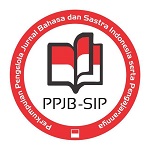Persepsi Mahasiswa Terhadap Umpan Balik Dosen Pembimbing pada Penyusunan Laporan Skripsi
Abstract
Umpan balik dosen pembimbing memainkan peran penting selama proses penulisan skripsi. Umpan balik dari pembimbing berfungsi sebagai alat yang berharga untuk membimbing mahasiswa, menyempurnakan penelitian dan penulisan pelaporan skripsi. Memahami bagaimana mahasiswa memandang dan berinteraksi dengan umpan balik ini menjadi penting untuk peningkatan kualitas bimbingan akademik yang berkelanjutan. Penelitian ini bertujuan untuk memaparkan persepsi mahasiswa terhadap umpan balik dosen pembimbing selama proses penulisan skripsi. Metode penelitian yang digunakan yakni kualitatif deskriptif. Dengan melakukan wawancara terhadap 20 mahasiswa politeknik Negeri Malang. Hasil temuan menujukkan bahwa Mahasiswa cenderung puas terhadap umpan balik dosen pembimbing. Selanjutnya, dosen pembimbing cenderung menggunakan berbagai teknik dalam memberikan umpan balik, sementara mahasiswa cenderung lebih menyukai komentar tertulis yang praktis dan jelas. Walaupun secara umum, mahasiswa memiliki sikap positif terhadap komentar tertulis, namun tidak selalu terdapat keselarasan pemahaman antara mahasiswa dan pembimbing.
Keywords
Full Text:
PDF (Bahasa Indonesia)References
Anjarsari, N., Suwandi, S., & Mulyono, S. (2013). Analisis Kesalahan Pemakaian Bahasa Indonesia. Jurnal Penelitian Bahasa, Sastra Indonesia dan Pengajarannya, 2(24), 1–13.
Bahtilla, M. (2022). Supervisory feedback: Supervisors’ reasons for not giving timely feedback, Innovat. Educ. Teach. Int. https://doi.org/10.1080/
Bastola, M. N. (2020). Engagement and challenges in supervisory feedback: Supervisors’ and students’ perceptions. RELC J, 53(1).
Beaumont, C., O’Doherty, M., & Shannon, L. (2011). Reconceptualising assessment feedback: A key to improving student learning? Studies in Higher Education, 36(6), 671–687. https://doi.org/10.1080/03075071003731135
Brinko, K. T. (1993). The practice of giving feedback to improve teaching: What is effective? J. High Educ, 64(5).
Burke, D. (2009). Strategies for using feedback students bring to higher education. Assessment and Evaluation in Higher Education, 34(1), 41–50. https://doi.org/10.1080/02602930801895711
Caffarella, R. S., & Barnett, B. G. (2000). Teaching Doctoral Students to Become Scholarly Writers: The importance of giving and receiving critiques. Studies in Higher Education, 25(1), 39–52. https://doi.org/10.1080/030750700116000
Çelik, S. (2020). Building critical academic writing skills: The impact of instructor feedback on Turkish ELT graduate students. Tesl-Ej, 24(3).
Cho, K., & Schunn, C. (2010). Developing Writing Skills Through Students Giving Instructional Explanations (pp. 207–221). https://doi.org/10.1007/978-1-4419-0594-9_13
East, M., Bitchener, J., & Basturkmen, H. (2012). What constitutes effective feedback to postgraduate research students? The Students’ Perspective, J. Univ. Teach. Learn. Pract, 9(2).
Gezahegn, T. H., & Gedamu, A. D. (2023). Supervisors’ and supervisees’ perception and perceived practice of a process-oriented thesis written feedback: The case of Ethiopian universities. Heliyon, 9(1), e12865. https://doi.org/10.1016/j.heliyon.2023.e12865
Ghazal, L., Gul, R., Hanzala, M., Jessop, T., & Tharani, A. (2014). Graduate students’ perceptions of written feedback at a private university in Pakistan. Int. J. High. Educ, 3(2). https://doi.org/10.5430/ijhe.v3n2p13.
Giles, T. M., Gilbert, S., & McNeill, L. (2013). Nursing students’ perceptions regarding the amount and type of written feedback required to enhance their learning [internet. J. Nurs. Educ, 53(1). https://doi.org/10.3928/01484834-20131209-02.
Ha, X. V., Tan, L., & Phu, B. (2021). Oral corrective feedback in English as a foreign language classrooms: A teaching and learning perspective. Heliyon, 7(7), 07550. https://doi.org/10.1016/j.heliyon.2021.e07550
Isa, R. M., & Azero, M. A. (2013). Assessment feedback to accounting students, Proc. Soc. Behav. Sci, 90, 651–659.
Keh, C. L. (1990). Feedback in the writing process: A model and methods for implementation. ELT Journal, 44(4), 294–304. https://doi.org/10.1093/elt/44.4.294
Kim, V., & Kim, J. (2020). Roles of teacher feedback in promoting effective English-medium instruction of a business subject. J. Asia TEFL, 17(3). https://doi.org/10.18823/asiatefl.2020.17.3.9.889.
Kumar, V., & Stracke, E. (2007). An analysis of written feedback on a Ph.D. Thesis, J. Teach. Higher Educ, 12(4).
Kusuma, I. A., & Islamiati, S. (2022). Students’ perception toward supervisors’ written feedback in writing thesis proposal, Teach. Engl. Lang. Learn. Eng. J. (℡LE.
McCarthy, J. (2015). Evaluating written, audio and video feedback in higher education summative assessment tasks. Issues in Educational Research, 25(2), 153–169.
Nemati, M., Alavi, S. M., Mohebbi, H., & Panahi, A. (2017). Speaking out on behalf of the voiceless learners: Written corrective feedback for English language learners in Iran. Issues in Educational Research, 27(4), 822–841.
Perez-Amurao, A. L. (2014). The value of feedback and conferencing in the process approach to writing for Filipino and Thai students in higher education: A comparative analysis. TESOL Int. J, 9(2).
Ravand, H., & Rasekh, A. E. (2011). Feedback in ESL writing: Toward an interactional approach. J. Lang. Teach. Res, 2.
Rowe, A. (2011). The personal dimension in teaching: Why students value feedback. International Journal of Educational Management, 25(4), 343–360. https://doi.org/10.1108/09513541111136630
Saragih, E., Zein, T. T., & Sumbayak, D. M. (2023). Contextualizing corrective feedback in scientific writing through online learning platforms. Studies in English Language and Education, 10(3), Article 3. https://doi.org/10.24815/siele.v10i3.25867
Shvidko, E. (2021). Taking into Account Interpersonal Aspects of Teacher Feedback: Principles of Responding to Student Writing (Republication). Journal on Empowering Teaching Excellence, 5(1). https://doi.org/10.26077/99d3-3f72
Tian, L., & Li, L. (2018). Chinese EFL learners’ perception of peer oral and written feedback as providers, receivers, and observers. Language Awareness, 27(4), 1–17. https://doi.org/10.1080/09658416.2018.1535602
Underwood, J. S., & Tregidgo, A. P. (2006). Improving student writing through effective feedback: Best practices and recommendations. J. Teach. Writ, 22(2).
Widowati, T., Putera, Z. F., Shofiah, N., & Ramadhani, R. P. (2023). Kemampuan Mengolah Bahan Bacaan pada Penyusunan Proposal Skripsi Mahasiswa. Konstruktivisme : Jurnal Pendidikan dan Pembelajaran, 15(1), Article 1. https://doi.org/10.35457/konstruk.v15i1.2612
Yamin, M., & Purwati, O. (2020). Enhancing Critical Writing Towards Undergraduate Students in Conducting Research Proposal. SSRN Electronic Journal. https://doi.org/10.2139/ssrn.3649250
Zheng, Y., Yu, S., Wang, B., & Zhang, Y. (2019). Exploring student engagement with supervisor feedback on master’s thesis: Insights from a case study. J. Innov. Educ. Teach. Int. https://doi.org/10.1080/14703297
DOI: https://doi.org/10.21107/metalingua.v8i2.19629
Refbacks
- There are currently no refbacks.
Copyright (c) 2023 Zulmy Faqihuddin Putera, Nurul Shofiah, Tutuk Widiowati

This work is licensed under a Creative Commons Attribution-ShareAlike 4.0 International License.
Jurnal Pendidikan Bahasa dan Sastra Indonesia Metalingua by Universitas Trunojoyo Madura is licensed under a Creative Commons Attribution-ShareAlike 4.0 International License.















